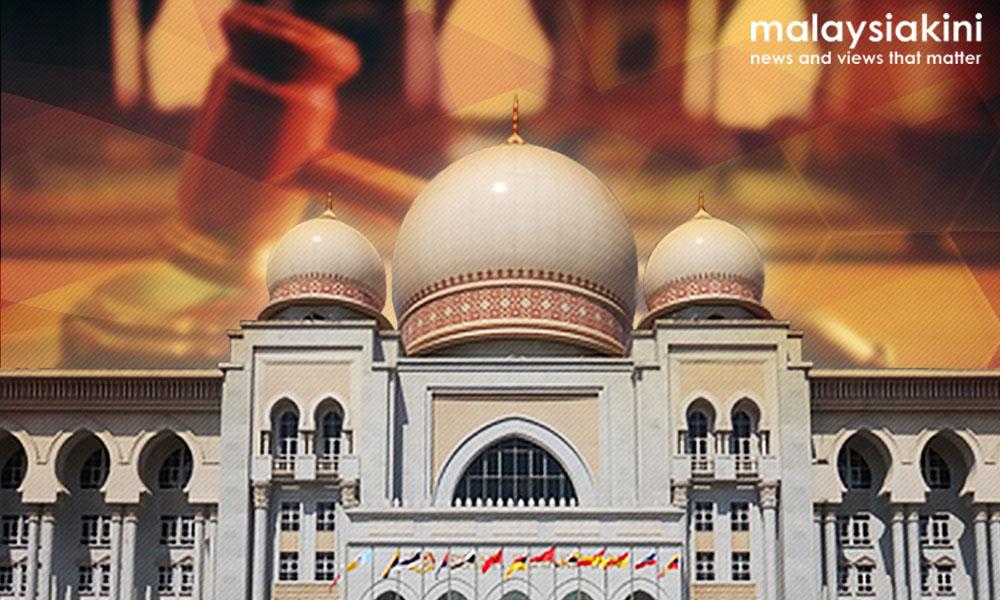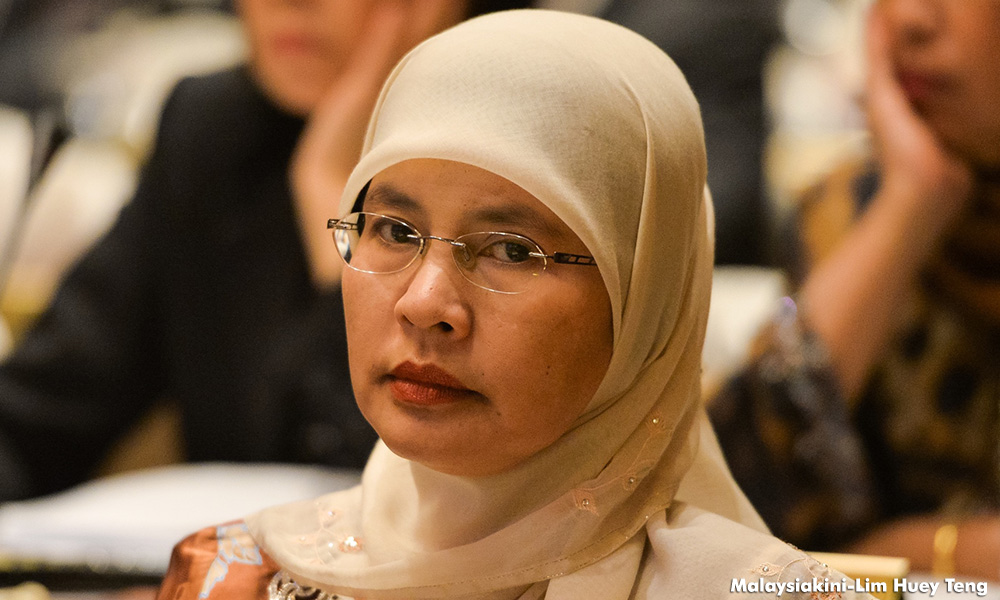
In a landmark decision, the Court of Appeal ruled that a child conceived out of wedlock can take on his or her father's surname, and that the edict on this by the National Fatwa Committee does not have the force of law.
Justice Abdul Rahman Sebli, who wrote the unanimous decision, said the jurisdiction of the National Registration Department (NRD) director-general is a civil one and is confined to determine whether the father had fulfilled the requirements of Section 13A (2) of the Births and Deaths Registration Act (BDRA).
This covers all children conceived out of wedlock, whether Muslim or non-Muslim.
The ruling was made in an appeal involving a seven-year-old child, who was born five months and 24 days (or five months and 27 days according to the Islamic Qamariah calendar) after his parents married.
In 2003, the National Fatwa Committee decided that a child conceived out of wedlock (“Anak Tak Sah Taraf”) can carry the name (“tidak boleh dinasabkan”) of the person who claims to be the father of the child, if the child was born less than six months of the marriage.
 The bench, consisting of Justices Abdul Rahman, Tengku Maimun Tuan Mat (photo) and Zaleha Yusof, allowed the family's appeal for the child to carry the father's name, “MEMK”.
The bench, consisting of Justices Abdul Rahman, Tengku Maimun Tuan Mat (photo) and Zaleha Yusof, allowed the family's appeal for the child to carry the father's name, “MEMK”.
The parents are only referred to by their initials in court documents, in order to protect the child's identity.
In making the court ruling, Justice Abdul Rahman said the NRD director-general is not obligated to apply, let alone to be bound by a fatwa issued by a religious body such as the National Fatwa Committee.
The child was registered with the NRD two years after birth and at the time of doing this, the parents jointly applied to have MEMK's name as the father, but the NRD registered the child as "bin Abdullah" instead.
“For him (the NRD director-general) to do so would amount to an abrogation of his power under the BDRA and surrendering it to the religious body.
"That would in effect be to take away the statutory right accorded to the father by Section 13A(2) to have his name ascribed as the child's surname in the birth certificate.”
“Such abrogation of power will render Section 13A (2) of the BDRA completely otiose and gives the impression that Parliament had enacted the provision in vain, a proposition that has no place in legislative interpretation.
"A fatwa or a religious edict issued by a religious body has no force of law, unless the fatwa or edict has been made or adopted as federal law by an Act of Parliament.
“Otherwise a fatwa issued by a religious body will form part of federal law without going through the legislative process,” Justice Abdul Rahman said.
Section 13A (2) of the BDRA states "the surname, if any, to be entered in respect of an illegitimate child may, where the mother is the informant and volunteers the information, be the surname of the mother; provided that where the person acknowledging himself to be the father of the child, in accordance with Section 13 requests so, the surname may be the surname of that person.”
Section 13 of the same Act also states "notwithstanding anything in the foregoing provisions of this Act, in the case of an illegitimate child, no person shall, as a father of the child, be required to give information concerning the birth of the child, and the registrar shall not enter in the register the name of any person as the father of the child except at the joint request of the mother and the person acknowledging himself to be the father of the child, and that person shall, in that case, sign the register together with the mother."
Stigma faced by the child
The bench allowed the appeal in May but Justice Abdul Rahman's 28-page grounds of judgment was made available just recently.
It noted that, aside from the legal technicalities, the issue involves the question whether an innocent child should be subjected to humiliation, embarrassment and public scorn for the rest of his life.
Justice Abdul Rahman said the parents' application to have the father's name in the register was approved and the DG acknowledged the man as the lawful father of the child.
“It is generally understood that if a Muslim child is given “Abdullah” as his surname when his father’s name is not, in fact, Abdullah, he will be exposed as a child that is born out of wedlock,” he said.
He added that it would just be a matter of time before the child discovers he was conceived out of wedlock by looking at his birth certificate.
“His identity card that will be issued later will also retain 'Abdullah' as his surname and all official documents involving him will likewise, bear the same surname. One can imagine the child's grief, not to mention the feeling of shame that he has to bear throughout his existence."
The judge noted that a birth certificate serves as a poignant reminder of one’s birth and "should not be turned into an instrument of shame".
"Unfair as it may appear to be, the child will have to carry the stigma of being an illegitimate child for the rest of his life, a classic case of being punished for the sins of his parents, who had in fact been legally married before he was born.
“They remain his parents to this day. His grief will be compounded if he compares his birth certificate with the birth certificates of his brothers and sisters (if any), which will carry their own father’s name as their surnames, unlike his birth certificate,” he said.
Justice Abdul Rahman said given the fact that the father had made the request, he had fulfilled Section 13A (2) (of the BDRA).
He said the section is meant for the benefit of a father whose child was conceived out of wedlock, and who wants to be recognised as the father of the child.
“Section 13A(2) is not a section that gives power to the DG to override the father's wish to have his name ascribed on the boy's surname.
"Nor is it a provision that empowers him to decide upon himself that the child's surname should be 'Abdullah'.
“It was the father's wish to have his name ascribed as the child's surname. That was a right accorded to him by statute and the DG had no right to deny him of that right without good cause.
"To feel bound by the fatwa of a religious body or to be guided by any irrelevant consideration is not a good cause,” the judge ruled in overturning the High Court's decision.
Commenting on the decision, the family's lawyers, Nizam Bashir and K Shanmuga, said the decision was heralded as giving rights for children conceived out of wedlock to bear their father's name and preventing them from being shunned or shamed by society. - Mkini


No comments:
Post a Comment
Note: Only a member of this blog may post a comment.